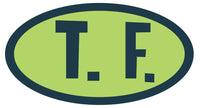
Going where I list, my own master total and absolute,
Listening to others, considering well what they say,
Pausing, searching, receiving, contemplating,
Gently, but with undeniable will, divesting myself of the holds that would hold me.” — Walt Whitman
Hey–
Mr. Whitman believed that to travel the open road freely was one’s birthright as an American. Seasoned hobos took great issue with Mr. Whitman’s democratic vision in that they knew every American place they landed their sorry asses was owned by somebody. The real culmination of the America we now know was the idea of “private property.” Gone are the wide open spaces of Whitman’s lovely and idealistic poems; it is all private property now. The idea of a “common land” was disposed of in the crucible of the Civil War. “Us” and “them” became just “Us.”
In almost every text about hobos and homelessness, there is some mention of “the scarecrow.” These farmland apparitions were not only meant to scare off birds, but other people as well. It seems every hobo is chilled by these seemingly harmless symbols. Many hobow feared that if they died on the road, some rube would truss them up to the nearest cross-piece and bandy their corpse about to public curiosity. I’ve read this more than once.
Scarecrows have their origins in warfare in that ancient tribes (Mayans, Aztecs, and many European cultures) would truss up the corpses of their enemies as an object lesson to invading interlopers. Many hobos feared they would become scarecrows. They would compare their level of hunger to that of becoming a scarecrow; a talisman of bad luck and dissolution. In the South, after the Civil War, scarecrow faces were painted and rendered into brutal stereotypes of African-Americans. In fact, Nathan Bedford Forrest, the founder of the Ku Klux Klan, insisted that his marauders dress in white sheets so that newly freed slaves would believe that they were the ghosts of Confederate soldiers, rather than the cowardly thugs they were.
Scarecrows intrigue me. I’ve only seen a few in real life, but the ones I’ve seen were spooky; burlap faces and button eyes, carved tin for teeth in the more elaborate ones, or animal skulls for a head and surrounded by tattered rags blowing in the wind. They are deathly totems that stay with you. They are still, yet full of evil intention and ill-will. They are the human…disappearing.
Tony
